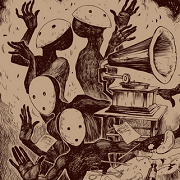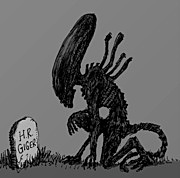(Thread IKs:
dead gay comedy forums)
|
Lasting Damage posted:dgcf already did a great job describing the who and the what, but it might also be helpful for you do describe some of these ideas they have that you like, to make sure other posters understand what you mean by Trotskyism. Flournival Dixon posted:I'd be interested to hear what specifics of it sound appealing, to me it feels like it appeals to countermaterialistic anarchist style moralizing but I'm far from like the average normal person when it comes to thinking about politics and how things should work as opposed to how they actually do according to my understanding of history and material reality. Sure thing. I'm mostly just curious about the term as I don't really know much about it - I don't consider myself a Trotskyist.... or any really kind of leftist. I read theory here and there but the vast majority of it goes over my head. I think Lenin had some good ideas. The big thing I understand about Trotskyism, which some of you have already pointed out, is the idea of permanent revolution (which I think is a cool idea on paper but who knows if it would ever be possible). The only other two ideas that I think are from Trotsky is getting working/poor people involved in revolution and that he was very anti-bourgeois revolution. Any all and info is greatly appreciated.
|
|
|
|

|
| # ? Apr 27, 2024 15:35 |
|
Mukulu posted:The only other two ideas that I think are from Trotsky is getting working/poor people involved in revolution and that he was very anti-bourgeois revolution. Any all and info is greatly appreciated. it is trivially true i guess but in practice Trotsky and his followers always opposed any revolution or insurgency that didn't strictly follow their ideology: they were and still are extremely opposed to maoism (that leaned a lot on the peasant class at first and repeatedly prevented any formation of a solified bourgeois leadership).
|
|
|
|
tristeham posted:it is trivially true i guess but in practice Trotsky and his followers always opposed any revolution or insurgency that didn't strictly follow their ideology: they were and still are extremely opposed to maoism (that leaned a lot on the peasant class at first and repeatedly prevented any formation of a solified bourgeois leadership). particularly funny given that mao, himself, asserted that he was committed to, and doing, "permanent revolution"
|
|
|
|
Ferrinus posted:particularly funny given that mao, himself, asserted that he was committed to, and doing, "permanent revolution" Atatürk had the idea of permanent revolution also; it's one of the tenets of Kemalizm taught at school before the Erdogan era
|
|
|
|
Ferrinus posted:particularly funny given that mao, himself, asserted that he was committed to, and doing, "permanent revolution" Not like this!!!
|
|
|
|
genericnick posted:Not like this!!! funnily enough the chief trot complaint about maoism is a mirror of trotsky's own complaint about doing socialism in one country in the USSR, which is that if you get peasants involved, that's cheating, and it doesn't count
|
|
|
|
when the dsa's international committee was just getting to its feet and internally self-determining who ran it and what it stood for, a member put forward a powerpoint presentation about socialism in china he'd already run in some local event and wanted to use as part of our nationwide political education. its two main points were that mao wasn't a real socialist because he made peasants part of his revolution, and in fact the ascent of mao and the cpc, followed by the rule of deng, hu, xi, etc. should not in any way be considered historically novel or even as part of any kind of modernizing force because china's history eternally has, and eternally will be, defined by a series of dynastic cycles, and xi's is just the newest dynasty. the twist? the writer was himself a chinese expat. thankfully he did not get his way
|
|
|
|
tristeham posted:it is trivially true i guess but in practice Trotsky and his followers always opposed any revolution or insurgency that didn't strictly follow their ideology: they were and still are extremely opposed to maoism (that leaned a lot on the peasant class at first and repeatedly prevented any formation of a solified bourgeois leadership). I would like to expand on this. Maoism, as a revolutionary practice, has been monumentally successful. I don't think there are any Marxist-Leninists of relevance that dispute that at all. One of the core factors why Lenin changed the game was exactly his outreach to the peasantry: The Proletariat and the Peasantry, V.I. Lenin posted:
If someone then asserts that there's something like a fundamental impossibility due to class character of the people involved, they got to be greater than Lenin and Mao at least. Trotskyite argumentation in that line is reverberation of the "more Correct" problem said before, a justification for elitism
|
|
|
|
that's basically the difference between proletarian dictatorship and marxist communism right? that the proletarian class interests are definitionally contained fully within the relations of industrial economics while communism and communist organizations are capable of generating an actual meta-historical perspective that can perceive and operate on industrialist society from a relatively external vantage point? it's not as if the bourgeoisie dont form coalitions with other non-bourgeois classes for the sake of developing and perpetuating capitalism
|
|
|
|
|
stumblebum posted:that's basically the difference between proletarian dictatorship and marxist communism right? I would say that such a fine-tuned distinction (if I am understanding you correctly) was a concern back in the very late 19th century and the start of the 20th. Like, some people would really loving seriously adhere to "dictatorship of the proletariat" being the urban industrial worker class alone, which ended up being a bit self-selective as most of them failed (and failed hard). Nowadays we use "proletariat" in a very broad sense that is more helpful than the sticklers would ever admit, since it serves many in the agroindustry and many different forms of labor categories that have since then emerged. If you mean a "proletarian dictatorship" as in a government imposed by urban workers by revolt and led by such a figure, I think that merits some research, tbqh.
|
|
|
|
dead gay comedy forums posted:
mila kunis posted:https://www.marxists.org/archive/radek/1921/04/kronstadt.htm Radek
|
|
|
|
i'm suggesting that trotsky and his ilk would technically be correct that the peasantry are incapable of non-subjugated cooperation with proletarian rule (where peasant =/= rural proletariat) if one assumes that the proletarian dictatorship would be established without communist ideology. organizing proletarian rule via communism, on the other hand, allows for a contextualization that can lead the peasantry to purposefully develop material conditions towards their own class extinction on the bases that a.) their proletarianization is a material inevitability under globalizing industrial economics, b.) it is better to be proletarianized in a society where the proletariat are dominant instead of subjugated, and c.) accepts proletarianization (with its disruptions and hardships) as necessary towards developing classless society (which would involve the extinction of the peasantry anyways) or rather, i'm asking if i'm conceptualizing this difference correctly, since i consider myself essentially illiterate in marxism
|
|
|
|
|
Fat-Lip-Sum-41.mp3 posted:In antiquity, temples were the storehouses of money, but not stacked as coins. The precious metals were made into statues, some simple and mass produced, some as ornate showpieces. This is how value was stored as a hoard. The Parthenon was like this. The great statue of Athena was designed to be broken down again. I had no idea. Thank you Skaffen-Amtiskaw posted:I am beholden to the burger god.
|
|
|
|
stumblebum posted:i'm suggesting that trotsky and his ilk would technically be correct that the peasantry are incapable of non-subjugated cooperation with proletarian rule (where peasant =/= rural proletariat) if one assumes that the proletarian dictatorship would be established without communist ideology. organizing proletarian rule via communism, on the other hand, allows for a contextualization that can lead the peasantry to purposefully develop material conditions towards their own class extinction on the bases that a.) their proletarianization is a material inevitability under globalizing industrial economics, b.) it is better to be proletarianized in a society where the proletariat are dominant instead of subjugated, and c.) accepts proletarianization (with its disruptions and hardships) as necessary towards developing classless society (which would involve the extinction of the peasantry anyways) the fundamental issue the soviets faced, and that shaped the thoughts of trotsky and others, is that industrial proletarian work is easily made to be collectivist but peasant farming wasn't. a small subsistence farmer can be the master of his own plot of land, he and his household can work it without too much reliance on others outside of needing to trade for material inputs like seeds and equipment occasionally. you can't do that with a factory, it requires collective effort at scale and its an easy sell to workers to tell them that the profits and output of their work is going to be collectively owned, because the alternative is "one guy" (capitalist) gets to keep all the profits. it was a much harder sell to the millions of rural peasants who got their own piece of land to work with in the wake of the 1917. this led to people like trotsky being deeply suspiscious of and against the rural peasantry and view them as a reactionary force. mila kunis posted:concentrated, industrialized agriculture *is* more productive than having millions of scattered independent freeholds. that's why agriculture in the USA is more productive and has better yields than where independent un-concentrated small peasant run farms that still exist, for example in India. under capitalism concentration takes the form of agribusiness, so like from the POV of a farm laborer it's really not that much of a difference whether the firm you're working for is a private capitalist mega-ag corp or a nationalized state owned one (other than that you might get better salaries/working conditions from the latter). ^ i think the last bit here is similar to "proletarianization is a material inevitability under globalizing industrial economics" that you're thinking of, and is similar to what people like bukharin proposed. instead the soviets took (ironically) trotsky's solution and collectivization ended up being a big disaster. i really would be interested in understanding how chinese land reforms were different and they managed to thread that particular needle and get collective farming to work (outside of the interregnum of the GLF).
|
|
|
|
someone’s gonna do a serious class analysis of the contemporary american economy someday and that’ll be cool
|
|
|
|
for what it's worth mao himself examines the question of proletarian vs. peasant class power in china and claims that the cpc's revolution is indeed a proletarian one, and that the proletariat is the decisive force, even though the peasants play a major part
|
|
|
|
well, it took a fair amount of time, but I finally finished Capital. I'm not much of a reader in general so I don't have a lot to compare it to, but the thoroughness of the historical analysis and the explanation for the concepts that arise from it is honestly just brilliant. I'll definitely have to go back to it many times to get a full understanding of it all, but I feel like I'm much better equipped to actually do materialist analysis. With that said, should I just jump into Vol II immediately? The list of books that are worth reading grew exponentially as I read through Capital and got more interested in some of the concepts it examined, especially now that I feel I actually have a shot at understanding them and the discipline to go through them. I even feel like I should re-read Origin of the Family, too.
|
|
|
|
and thanks for Bills for giving me the little spark in my brain that said "dude you need to actually read theory".
|
|
|
|
Halser posted:With that said, should I just jump into Vol II immediately? If you think you benefit from keeping the pace and you want to, yeah, surely. Otherwise, a cool learning trick is to alternate topics of reading, which does something to engage the unconscious and when you go back to the previous topic, a lot of what you have learned comes back in a far more intuitive/tacit manner. A good bunch of Marxists from our part of the world read theory and alternate with history or literature, for example
|
|
|
|
I think it would be good for me to read a bit about brazillian history, put the theory into a more relevant context.
|
|
|
|
mila kunis posted:the fundamental issue the soviets faced, and that shaped the thoughts of trotsky and others, is that industrial proletarian work is easily made to be collectivist but peasant farming wasn't. a small subsistence farmer can be the master of his own plot of land, he and his household can work it without too much reliance on others outside of needing to trade for material inputs like seeds and equipment occasionally. you can't do that with a factory, it requires collective effort at scale and its an easy sell to workers to tell them that the profits and output of their work is going to be collectively owned, because the alternative is "one guy" (capitalist) gets to keep all the profits. there's still a LOT of decentralized, small scale farming in China. When I was working in the Dongbei doing archaeological survey (of spaces of several hundred square kilometers) virtually all the agriculture was being done semi - communally. A given field would be separated into rows (not literal rows of a single planting but "vertical" stripes of territory) that were worked by a given family, and then the produce was pooled and the proceeds distributed (I don't know by exactly what mechanism). Most of this was essentially unmechanized - a lot more donkeys than tractors, and a lot of hand picking. My very loose understanding is that this sort of serves as a precursor to industrializing the production - first you get the small holders to pool together in to kind of coops, then eventually you get them tractors and poo poo whether through the market or assignation, and then that makes a lot of those small holders unnecessary and they move off to get jobs in the city (are they paid some pension or buy out, I'm not sure) and slowly the regional farming consolidates into something like a Western agri-business. I'd like to know at what point these are nationalized or whether a lot of them are being run via the system of letting capitalists run the business and just keeping a tight lid on their choices and political activity.
|
|
|
|
DeimosRising posted:there's still a LOT of decentralized, small scale farming in China. When I was working in the Dongbei doing archaeological survey (of spaces of several hundred square kilometers) virtually all the agriculture was being done semi - communally. A given field would be separated into rows (not literal rows of a single planting but "vertical" stripes of territory) that were worked by a given family, and then the produce was pooled and the proceeds distributed (I don't know by exactly what mechanism). Most of this was essentially unmechanized - a lot more donkeys than tractors, and a lot of hand picking. My very loose understanding is that this sort of serves as a precursor to industrializing the production - first you get the small holders to pool together in to kind of coops, then eventually you get them tractors and poo poo whether through the market or assignation, and then that makes a lot of those small holders unnecessary and they move off to get jobs in the city (are they paid some pension or buy out, I'm not sure) and slowly the regional farming consolidates into something like a Western agri-business. I'd like to know at what point these are nationalized or whether a lot of them are being run via the system of letting capitalists run the business and just keeping a tight lid on their choices and political activity. yeah. if you go to the southwestern mountainous regions a lot of the farming is terraced small scale farming. idk how you mechanize terraced farming on the sides of steep hills even
|
|
|
|
Halser posted:I think it would be good for me to read a bit about brazillian history, put the theory into a more relevant context. got you fam Formação Econômica do Brasil (Economic Formation of Brazil), Celso Furtado. Not a Marxist, but I strongly rec this one because it's excellently done economic history and it's super easy to apply Marxism to complement the understanding. Plus, short chapters! O Povo Brasileiro (The Brazilian People), Darcy Ribeiro. Sociology, history and anthropology about the process of constitution of Brazilian people and an absolute classic. He was in the PCB and Darcy Ribeiro is one of the serious great names of Brazilian intellectuality. História Econômica do Brasil (Economic History of Brazil), Caio Prado Júnior. Caio Prado is also one of the great names of Brazilian Marxism and communist thought, having approached Brazilian history through different angles. Os Donos do Poder (Those Who Have Power), Raymundo Faoro. Seriously a loving great book. Faoro uses Weberian sociology really well here, to laser-focus on the formation of the Brazilian elite and how it thinks the country and the people, on how it builds its social relations and how it fucks up for everybody else. This read becomes fantastic when you bring some Marxism with it, as the material-economic understanding really helps to complement the sociological arguments here. A Elite do Atraso (The Backward Elite), Jessé Souza. The most modern read so far. Jessé revisits some classic arguments of Brazilian sociology and puts the core reason of why things here are like that on slavery (instead of corruption or patrimonialism etc), which is also part of the Marxist argumentation. It is much more about the present day, but it's worth referring.
|
|
|
|
Also some of these books are in English and are great theory reads in their own right, even if you don't know poo poo about Brazil. As an exercise of political economy, it's also great: compare with your own country, identify the peculiarities, realize the differences. Doing so is applied Marxism and will help you to understand your own surroundings much better
|
|
|
|
Thanks for the recommendations! I've been watching Jones Manoel pretty consistently lately and that's a point he hammers on frequently, and I have to admit I know a lot more about politics and history outside of Brazil than in. Doesn't help I'm a cave troll that rarely if ever engages with people IRL, too.
|
|
|
|
Anyone have good recommendations for books on Marxism and AI?
|
|
|
|
Zadok Allen posted:Anyone have good recommendations for books on Marxism and AI?
|
|
|
|

|
| # ? Apr 27, 2024 15:35 |
|
I don't know if there has really been any Marxist writing on what they're calling AI nowadays because it is not actually "real" in the sense that it doesn't and will never do what its proponents claim (and, fundamentally, cannot), nor does it bring us any closer to any kind of technology that can like AGI or whatever. It's not even really automation, except for maybe e-mail jobs and some types of visual artist. That said, AI does represent a kind of capital technology in that it is a new amalgam of a half-actual service/technological geegaw and a useful social fiction that is and will continue to serve as a sort of package of lies and propaganda that makes a bunch of stuff like wealth transfer, proletarianization, imperial extraction, etc. etc. etc. all go down a little smoother. GPT and services like it are going to go bust in much the same way that NFTs did. Not for lack of trying, but because the compute costs are too high and they don't have as direct and powerful an extractive mechanism as compared to something like eg. bitcoin -- but -- the fictions surrounding "AI" are going to persist because that is the actually useful part.
|
|
|
























